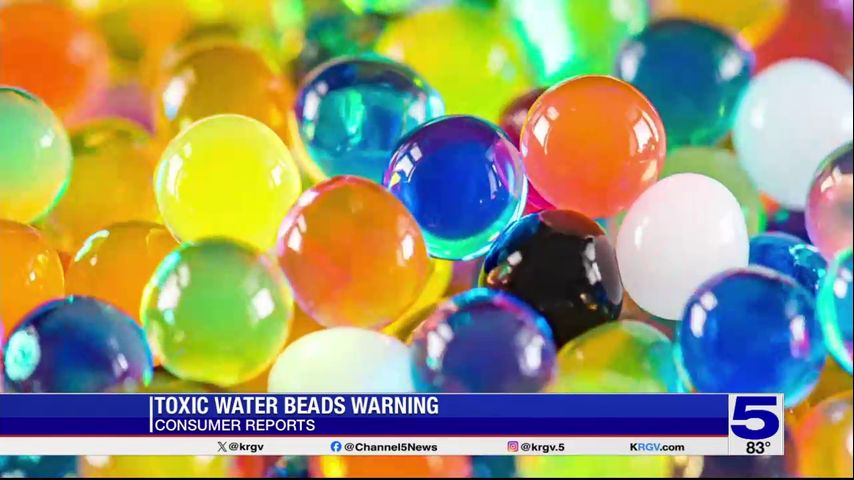Consumer Reports: Water bead toxic consumer product safety commission warning
Water beads, the popular children’s toy, are back in the news after new safety warnings.
Regulators say two brands contain a dangerous toxin. In its ongoing investigation, Consumer Reports reveals more about this latest water bead hazard and what parents need to know about avoiding them altogether.
They start out tiny and look like innocent fun. But water beads are made from a super absorbent material that grows dramatically in water.
This creates a hazard to babies and even older children when they are accidentally swallowed, inhaled, or put into an ear or nose. The risks include choking, intestinal blockages, lung collapse, hearing loss, infections, and even death.
On top of that, there are new warnings from the Consumer Product Safety Commission after they found high levels of acrylamide, a known carcinogen, in two brands of water beads.
Acrylamide is harmful to the nervous and reproductive systems and the brain.
Jangostor and Tuladuo are the two brands whose beads the CPSC says contain high levels of the toxic chemical.
Jangostor beads were sold on Amazon in tubs and plastic bags, and Tuladuo beads were also sold on Amazon in large activity kits.
Amazon tells Consumer Reports that as of December, they do not allow the sale of water beads that are marketed to children, including as toys. Amazon says it is warning people who bought these two brands of water beads and issuing refunds.
But that doesn’t solve the problem entirely. They can still be found online, often marked as something other than toys. And some companies haven't taken any steps to remove the products.
CR says this is all part of a bigger safety problem -- an influx of cheap, unregulated products, mostly from overseas manufacturers.
CR is seeing more and more pop-up companies offering cheap products that are flooding U.S. marketplaces. Just because something is available on an online platform doesn’t mean it’s tested to be safe.
As for water beads, if you own any brand, immediately throw them out. Put them in a sealed container and toss them in the trash.
And Consumer Reports warns everyone to be very skeptical of labels that say non-toxic. It’s a term that’s under-regulated and under-enforced. You are better off checking with a company directly about its ingredients if you are concerned.





